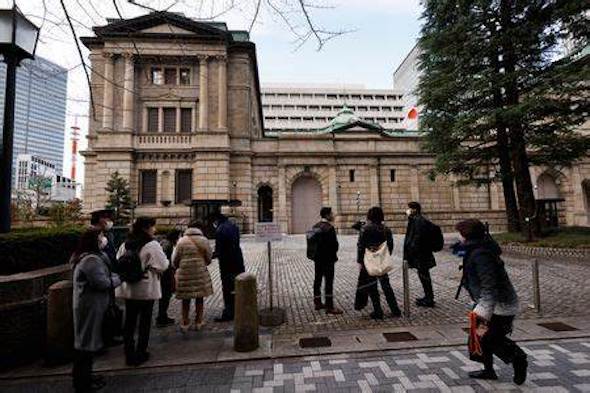The Japanese yen fell on Wednesday after the country’s central bank defied expectations that it would phase out its huge stimulus programme.
The Bank of Japan maintained its ultra-low interest rates and a bond yield cap it has been battling to defend amid rising inflationary pressure.
The surprise decision sent the yen skidding against other currencies as investors unwound bets they made anticipating the central bank would overhaul its yield control policy.
At a two-day policy meeting, the BOJ kept intact its yield curve control (YCC) targets, which are set at -0.1% for short-term interest rates and around 0% for the 10-year yield, by a unanimous vote.
The central bank also made no change to its guidance that allows the 10-year bond yield to move 50 basis points either side of its 0% target.
ALSO SEE:
China’s 2022 Growth of 3% Among the Worst in 50 Years
In a sign of its resolve to keep defending the cap, the BOJ beefed up a key market operation tool to more effectively curb rises in long-term interest rates.
“Widening the yield band or dismantling YCC now would have made the BOJ even more vulnerable to market attack,” Izuru Kato, chief economist at Totan Research, said.
“By showing its resolve to use market tools more flexibly, the BOJ wanted to signal to markets it won’t make big monetary policy changes under Governor Haruhiko Kuroda.”
Kuroda’s second five-year term is due to end in April, which has increased speculation that the BOJ may be set to amend its strategic policy.
S&P Global Market Intelligence said: “The BOJ is likely to maintain its monetary policy over the near-term unless the consumer price index (CPI) inflation persists and wages increase sufficiently.
“The bank has revised its outlook for CPI inflation (excluding fresh food) for fiscal year 2022 (ending March 2023), reflecting recent price increases, as well as that for FY 2024, reflecting the waning effects from the government’s subsidies for utility bills. However, the BOJ maintains its view that CPI inflation will moderate below 2% in FY 2023.”
- Reuters with additional editing and reporting by Jim Pollard
NOTE: This report was updated (with comment from S&P) on January 18, 2023.
ALSO SEE:
Yen Jumps on Talk of BOJ Shift, Dollar Drops to 7-Month Low
Netherlands to Consult Japan, Taiwan on US-China Chip Curbs
Japan, US Say China ‘Greatest’ Challenge, to Mull Chip Curbs
























